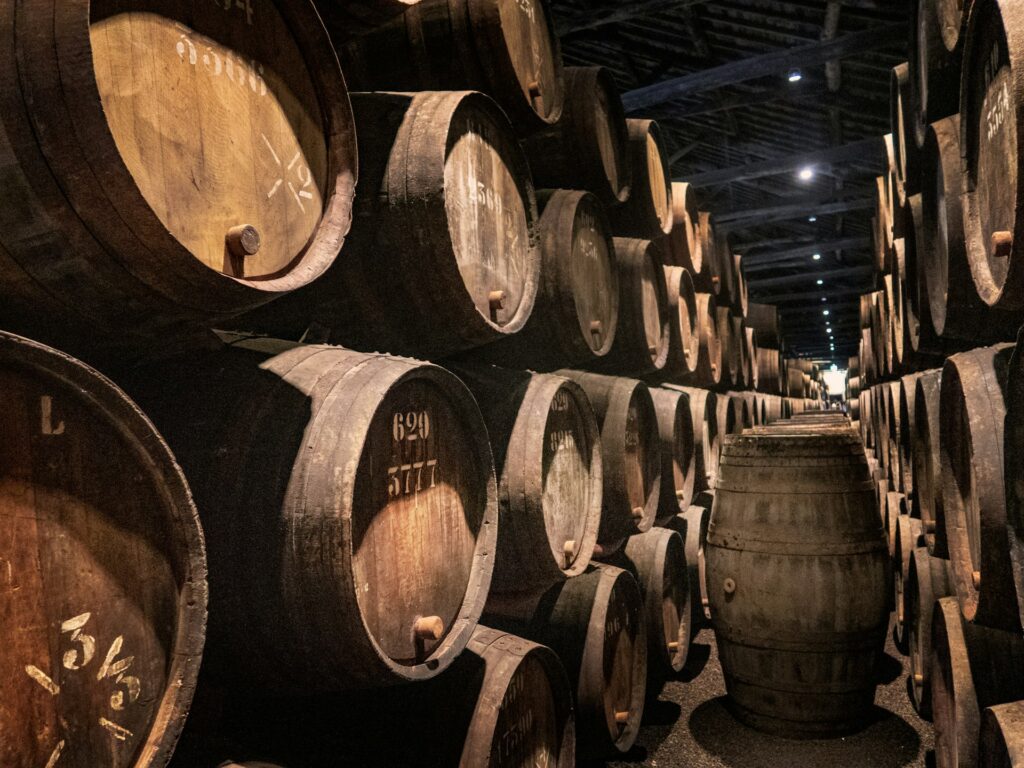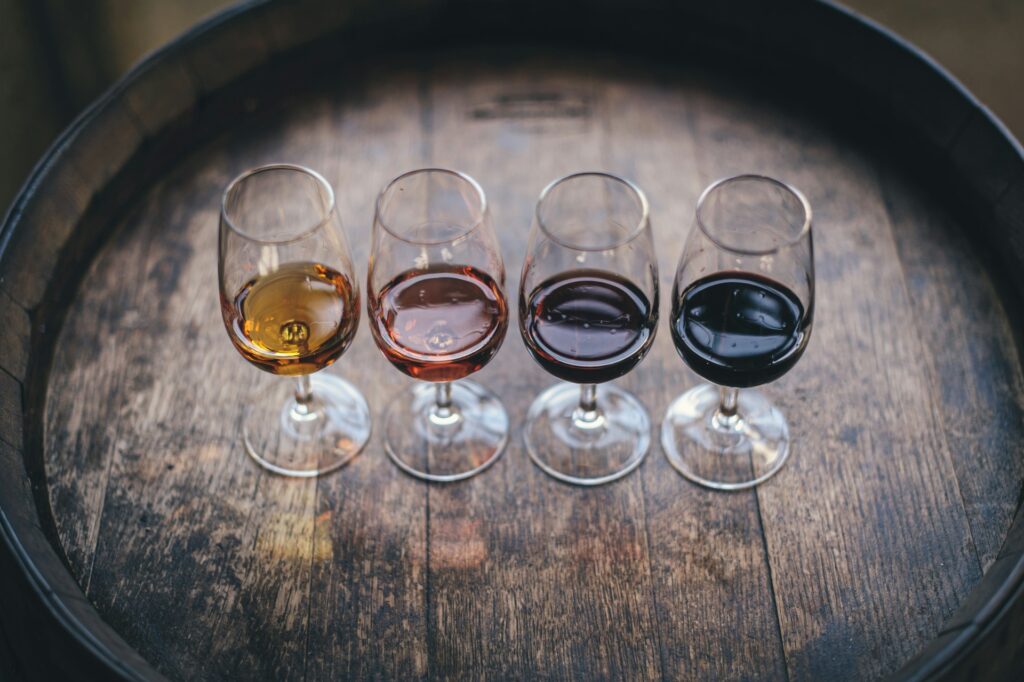Hey you! Yes, you there, squinting into the screen and searching for meaning. Since you’re here, may we pay you a compliment? Ok, here goes; like a fine wine, you just seem to get better with age. But what if that compliment could, well, pay you?
In recent years, discussion of fine wine has moved from the mouths of sommeliers, claret connoisseurs and part time plonkers and into the vernacular of the serious investor, regardless of the latter’s grasp of bouquet, grape and noble rot.
Though you may be conservant in the terminology, the process of investing in fine wine can be complex. Whilst not everyone has a nose for quality wine, if you’re able to sniff out a good deal, then this could be for you.
The scarcity and quality of fine wine will appreciate as time passes, and so will its value. As such, it is possible to purchase wine bottles, store them, and then sell them for a higher price in the future. Of course, it’s not that simple, but if you’re wondering whether fine wine is a worthwhile investment, then here are 5 beginner’s tips.
Types Of Fine Wine Investment
Fine wine investment isn’t restricted to simply buying a few more expensive bottles, stashing them in the back of a cupboard and hoping for the best a few years down the line. In fact, that would be one of the more limiting approaches in this increasingly lucrative field.
There are several fine wine investment opportunities available, depending on your budget, level of commitment, and knowledge of both wine and, perhaps more importantly, investing. For example, investors can choose from wine-specific investment funds, stock exchanges, storage solutions for aging bottles, and more, all in the name of generating a pretty profit.
Beyond wine itself, the broader spirits investment market has also gained significant traction in recent years. Whisky, in particular, has emerged as a high-performing alternative asset, with rare bottles showing returns of up to 322% over the past decade.
Some investors are even exploring cask investment services, which allow them to purchase entire casks of maturing whisky directly from distilleries, offering the potential for substantial appreciation as the spirit ages. There are also plenty of options when it comes to buying and selling assets. The most popular for more small-time, hobbyist investors is the gradual building of an investment portfolio of fine wines which are most likely to accrue value over time and are, also, the least risky to store over the necessary, extended period of time without depreciating in quality and value.
If all of that sounds a little complicated and you’re purely in this thing for the money, then there is a simpler solution, too. A person can rely on a wine investment company for purchasing the wine and storing it on their behalf. This helps individuals invest in wine without having to deal with the headaches and hangovers related to constructing a wine cellar.

Storage Smarts
Storing fine wine correctly, in the hope of it appreciating value over time, is one of the key elements of successful fine wine investment. In some situations, a person does not even have to possess the bottle of wine purchased to gain its accrued value. Instead, they can have them stored in specialist facilities for as long as they need, for a price, of course. This ensures the wines remain safe and in pristine condition until a profit can be made. Alternatively, if someone is not interested in collecting and storing wine, they can consider making an investment in blue-chip wine stocks and funds, which is another viable market.
But on the more hobbyist side of things, investing in proper wine storage is absolutely essential to ensure the value of bottles appreciates rather than depreciates, and is integral to any fine wine investment actually being financially viable. Fortunately, we’ve got just the article to help you with that; check out these 5 IDEAL tips for storing your wine to guarantee longevity.

Benefits Of Wine Investment
Making moves into the world of fine wine can be a profitable investment option, whether it’s a simple, singular transaction or a way of further diversifying a large, varied portfolio.
When considering the benefits of investing in wine, it should be noted that fine wine has a low correlation with a stock market currently performing somewhat lethargically.
Reports show that the fine wine market has outperformed most exchange-traded funds and global equities in these increasingly volatile times. Indeed, the Liv-ex Fine Wine index, which tracks the daily price movement of the most heavily traded commodities in the fine wine market, consistenly shows wine seriously outperforming more traditional forms of investment, showing that luxury consumables are resistant to the broader volatile markets’’. Food, or rather, drink for thought, indeed.
It’s this sense of stability which should appeal to new investors, particularly when gold and real estate are currently so unpredictable. In fact, at the end of last year, the Telegraph reported that fine wine had surged 200% in the last decade, with its price particularly resistant to the market swings of a global pandemic and Brexit.

…& The Risks
So, why wouldn’t you invest? Well, as with any investment in a perishable product, there are some pretty big risks here. Perhaps the largest concerns the risk of fraud, which is rife in the upper echelons of the fine wine world.
A particularly high profile case involving the relabelling of basic bottles with highly sought after vintages garnered widespread media attention in 2016; there’s even been a Netflix documentary, Sour Grapes (reviewed strongly on Rotten Tomatoes, the parallel names amusing us), about the protagonist Rudy Kurniawan, who amassed a fortune, selling $24.7 million worth of wine at a single auction in 2006. Though this is an extreme example, scams of a similar nature aren’t particularly rare in the fine wine investment game, and do represent a risk.
It should also be noted that short term gains are very rare. Anyone hoping to make profit from fine wine investment needs to be playing the long game. Since wine doesn’t actually produce any returns whilst it’s in storage (and storing and insuring your bottles will cost you), you’ll only see financial gains when you sell your bottle. As such, you need a fair amount of capital and patience to make this thing a success.

Understanding Investment Grade Wine
Several key criteria determine whether a wine qualifies as investment grade. First and foremost is aging potential; the wine must be capable of improving in the bottle for decades, not just years. Production volume matters too – wines must be scarce enough to be desirable but produced in sufficient quantities to create a liquid market for trading. Provenance is paramount; bottles must have impeccable storage history and documentation to command top prices. Finally, consistent critical acclaim and a proven track record of price appreciation are essential indicators that a wine will continue to perform well as an investment.
The Classics: French Dominance
This category is dominated by classic French wines, especially 1855 classification Bordeaux reds, Grand Cru Burgundy, and Rhône Valley wines. The 1855 Bordeaux classification, created for the Exposition Universelle de Paris, remains the gold standard of investment grade wine nearly 170 years later. This ranking system classified the region’s châteaux into five tiers, with First Growths (Premiers Crus) representing the pinnacle of collectability.
The ‘Big Five’ First Growths – Château Lafite Rothschild, Château Latour, Château Margaux, Château Haut-Brion, and Château Mouton Rothschild (elevated to First Growth status in 1973) – consistently command the highest prices and offer the most stable returns. Particular vintages, such as 2000, 2005, 2009, 2010, and 2015, are especially sought after by collectors and investors alike.
In Burgundy, the Grand Cru vineyards represent less than 2% of the region’s production, making them inherently scarce and valuable. Domaine de la Romanée-Conti (DRC) produces some of the world’s most expensive wines, with bottles regularly fetching five and six-figure sums at auction. Other notable Burgundy producers include Domaine Leroy, Domaine Armand Rousseau, and Domaine Leflaive.
The Rhône Valley’s contribution to investment grade wine centres largely on Hermitage and Côte-Rôtie, with producers like Domaine Jean-Louis Chave and Maison Guigal commanding serious premiums for their top bottlings.
Beyond France
Italy’s ‘Super Tuscan’ wines – so called because they initially defied traditional Italian wine laws by blending international grape varieties – have carved out their own investment niche. Sassicaia, Ornellaia, and Masseto regularly feature in investment portfolios, with certain vintages appreciating significantly over time.
California’s Napa Valley has produced genuine investment grade wines, particularly Cabernet Sauvignon from cult producers. Screaming Eagle, Harlan Estate, and Opus One have all demonstrated strong secondary market performance, though they remain somewhat more volatile than their European counterparts.
Emerging Markets
Whilst traditional European regions still dominate, savvy investors are keeping a close eye on emerging investment grade wines. Champagne, particularly prestige cuvées from houses like Dom Pérignon, Krug, and Cristal, has shown impressive appreciation in recent years. Spain’s Vega Sicilia Único and Pingus have also gained traction in investment circles.
Perhaps most intriguingly, certain producers from Australia (Penfolds Grange), Chile (Almaviva), and even England’s sparkling wines are beginning to demonstrate the consistency and secondary market liquidity that could see them classified as investment grade in the coming years. However, these remain speculative plays compared to the established French classics, and should constitute a smaller portion of any serious wine investment portfolio.

Building A Balanced Wine Portfolio
Much like traditional investment portfolios, a well-constructed wine collection requires thoughtful diversification to maximise returns whilst mitigating risk. The temptation for newcomers is often to chase the most prestigious names or the latest ‘hot’ vintage, but a strategic approach will serve you far better in the long run.
Investment advisors typically recommend that 60-70% of your wine portfolio should consist of ‘core holdings’ – established, blue-chip wines with proven track records. This means First Growth Bordeaux from strong vintages, top-tier Burgundy Grand Crus, and other classics that have demonstrated consistent appreciation over decades. The remaining 30-40% can be allocated to ‘growth wines’ – slightly more speculative investments like Second Growth Bordeaux, cult California Cabernets, or highly rated wines from emerging regions.
Avoid concentrating too heavily in any single region or vintage, regardless of how promising it seems. A balanced portfolio might allocate 40% to Bordeaux, 25% to Burgundy, 15% to Italian wines, 10% to Champagne, and 10% to other regions. Similarly, mix highly rated vintages with ‘good’ vintages from top producers, which often represent better value.
Where possible, invest in full cases rather than individual bottles – they command premiums at auction and are far easier to sell. However, keep some smaller lots for flexibility when you need to liquidate portions of your portfolio. Not all wines should have the same investment timeline either; stagger your holdings so some are suitable for selling within 5-7 years whilst others should be held for 15-20 years to realise their full potential.
Review your portfolio annually and rebalance as needed. Research suggests allocating around 5-10% of an overall investment portfolio to fine wine can improve stability and enhance long-term returns. The goal isn’t just to own impressive wines; it’s to build a collection that generates returns whilst managing risk effectively.

Timing Your Exit
Knowing when to sell your wine is just as crucial as knowing what to buy. The interval between when a wine is ready to drink and when it starts to go downhill is known as its drinking window, and savvy investors aim to sell when demand from collectors is at its highest but with sufficient time remaining to ensure the wine is still of optimum quality to drink.
Market conditions matter, too. Pay attention to significant anniversaries – milestone vintages often see price spikes as collectors seek out birth-year bottles or wines from historically important years. Similarly, critical re-ratings or the passing of a renowned winemaker can trigger sudden increases in demand and value.
Avoid selling during summer or winter months when possible, as adverse weather conditions increase the risk of damage during shipping, potentially affecting both the sale price and the wine’s condition upon arrival. The spring and autumn months typically offer more stable conditions for wine transport.
Finally, keep a close eye on your wine’s drinking window. Once a wine passes its peak, values can drop precipitously. Better to sell a year early than a year too late – in the wine investment game, timing truly is everything.
The Bottom Line
Once the preserve of wealthy elites, fine wine investment now represents a savvy, stable financial move in a market so volatile and unpredictable. Cheers to that!
Perhaps you’ll be starting your investment journey in the famous French wine region of Champagne? Check out our guide on taking a luxury holiday in the region here, and make sure you pack some Gaviscon!





